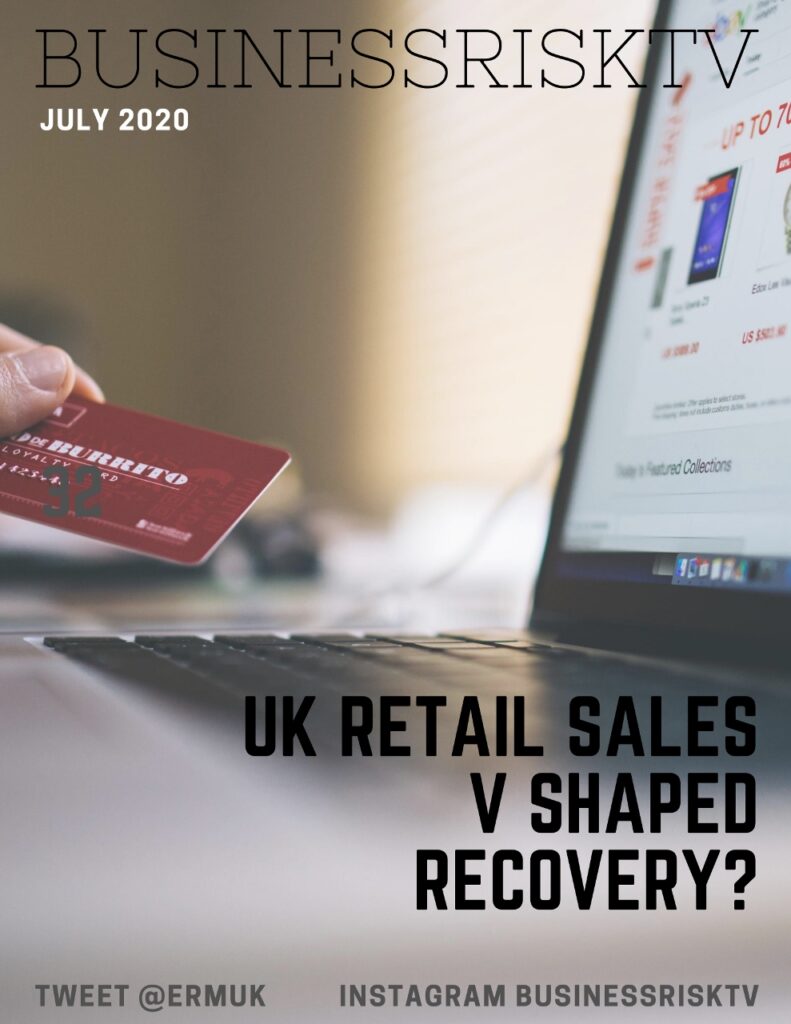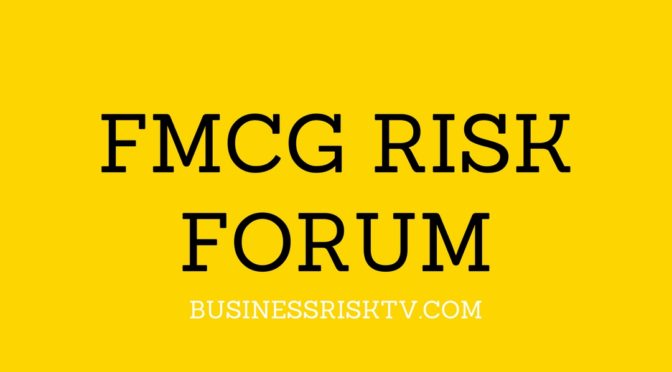Latest FMCG news headlines opinions debate risk analysis and business reviews
FMCG industry risks you need to know more about. Do you work in the FMCG industry? Could FMCG industry risks be managed better? Want to drive business growth faster more profitably? Could you sell more FMCG products with a little more innovation?
What are the biggest threats to the FMCG industry? How do you come up with new ideas for new products and get them to market quicker and sell more profitably? Find out more.
Enter code #FMCGrisks

FMCG Industry Risks Management Forum
FMCG business management experts FMCG business leaders and entrepreneurs and FMCG risk managers working together to protect business and thrive in future.

FMCG Risk Forum promotes best practices and encourages the sharing of industry risk information to assist in members business decision-making processes. Get free help to tackle the biggest risks facing the consumer products industry today.
Helping connect FMCG business leaders and customers
Finding the latest information on FMCG emerging and changing risks can be time consuming or unfruitful. We make life and FMCG business easier and better.
Searching for FMCG risk management information is free. Come back often to find the best FMCG risk management tips and practices. Pick up the latest FMCG news headlines opinions debate and business reviews.
Promote and market your business on BusinessRiskTV for 12 months
Business leaders do not always have the marketing budget to promote their FMCG business locally and globally. We provide a range of online marketing options for FMCG businesses to fit most budgets so you can promote your business products or services for longer.
Put your products or services in front of new people already interested in your type of business offering before your competitors do.

Increase the sources of your revenue streams more sustainably. Grow your FMCG business faster with BusinessRiskTV.
Click on subscribe button below to find other ways of promoting your FMCG business more cost effectively.

FMCG Magazine
BusinessRiskTV FMCG Industry Magazine
The Fast-Moving Consumer Goods (FMCG) industry is a highly competitive space that is constantly evolving. FMCG products are typically low-margin goods that sell quickly and have a short shelf life, such as food, beverages, personal care products, and household goods. These products are sold in high volumes and require a constant flow of new products to stay relevant and meet changing consumer preferences. The FMCG industry is a critical part of the global economy and is estimated to be worth over $4 trillion.
While the FMCG industry has numerous opportunities for growth, there are also significant risks that must be managed. These risks include changes in consumer behaviour, supply chain disruptions, regulatory changes, and environmental risks. To succeed in this industry, companies must be proactive in identifying and managing these risks.
One of the most significant risks that FMCG companies face is changes in consumer behavior. Consumer preferences and buying habits are constantly changing, and companies must adapt quickly to stay relevant. For example, in recent years, there has been a growing trend towards healthier eating, which has led to a significant increase in demand for organic and natural food products. FMCG companies that fail to respond to these changes risk losing market share to competitors who can meet these changing consumer preferences.
To manage this risk, FMCG companies must invest in market research and stay up-to-date with the latest consumer trends. They must also be flexible and adaptable, ready to pivot their product offerings to meet changing consumer preferences. Companies that are successful in this area often have robust product development pipelines, allowing them to bring new products to market quickly.
Another significant risk for FMCG companies is supply chain disruptions. The FMCG industry relies heavily on complex supply chains to deliver products to consumers. Disruptions in these supply chains can result in significant losses for companies, including lost revenue, increased costs, and damage to their reputation.
To manage this risk, FMCG companies must have a comprehensive understanding of their supply chains, including their suppliers and their suppliers’ suppliers. They must also have contingency plans in place to deal with disruptions, such as alternative suppliers and backup transportation options. FMCG companies that are successful in managing supply chain risks often have strong relationships with their suppliers and invest in technologies such as blockchain to improve supply chain visibility.
Regulatory changes are another significant risk for FMCG companies. The FMCG industry is subject to numerous regulations and standards, including food safety regulations, packaging and labeling regulations, and advertising regulations. Changes to these regulations can have a significant impact on FMCG companies, including increased compliance costs and decreased sales.
To manage this risk, FMCG companies must stay up-to-date with the latest regulatory changes and have strong compliance processes in place. They must also have contingency plans in place to deal with any changes in regulations, such as changes to their product offerings or production processes. FMCG companies that are successful in managing regulatory risks often have dedicated compliance teams and invest in compliance technology.
Finally, environmental risks are a growing concern for FMCG companies. Consumers are becoming increasingly aware of the impact of their consumption on the environment, and FMCG companies are under pressure to reduce their environmental footprint. Environmental risks can include issues such as climate change, water scarcity, and waste management.
To manage this risk, FMCG companies must invest in sustainability initiatives and reduce their environmental footprint. This can include reducing waste, using renewable energy sources, and reducing greenhouse gas emissions. FMCG companies that are successful in managing environmental risks often have dedicated sustainability teams and invest in sustainable technology.
The FMCG industry is a highly competitive space that requires companies to be proactive in identifying and managing risks. These risks include changes in consumer behaviour, supply chain disruptions, regulatory changes, and environmental risks. To succeed in this industry, companies must invest in market research, have strong supply chain relationships and contingency plans, stay up-to-date with regulatory changes, and invest in sustainability initiatives. Companies that are successful in managing these risks are more likely to maintain their market share and stay competitive in the fast-moving world of FMCG.
To further mitigate risks, FMCG companies can also consider implementing risk management frameworks and adopting risk-based decision-making processes. These approaches can help companies identify, assess, and prioritise risks, and make informed decisions to mitigate them.
Risk management frameworks typically involve a structured approach to identifying and analysing risks, followed by the development and implementation of risk mitigation strategies. Adopting a risk-based decision-making process involves evaluating the potential risks associated with different business decisions and taking steps to mitigate those risks.
In addition, FMCG companies can also leverage technology to better manage risks. Technologies such as artificial intelligence and machine learning can be used to analyse data and identify potential risks before they occur. For example, predictive analytics can be used to forecast changes in consumer behaviour, allowing companies to respond proactively.
FMCG companies can also use technology to improve supply chain visibility and traceability, making it easier to identify potential disruptions and respond quickly. Blockchain technology, for example, can be used to create a tamper-proof record of a product’s journey from the manufacturer to the consumer, improving transparency and reducing the risk of fraud.
The FMCG industry is a dynamic and fast-paced space that presents numerous opportunities for growth, but also significant risks. Companies that are proactive in identifying and managing these risks are more likely to succeed in this highly competitive industry. By investing in market research, developing strong supply chain relationships and contingency plans, staying up-to-date with regulatory changes, adopting sustainability initiatives, and leveraging technology, FMCG companies can mitigate risks and stay competitive in the years to come.
More Risk Information:
Look out for upcoming online forum events
Create New Revenue Stream For Your FMCG Business
Learn how to create new revenue streams for your business in the UK and overseas. Its a good idea to diversify your revenue streams to protect your business. BusinessRiskTV created revenue stream runs into your existing sales processes so you have control and security of your investment and branding.
At the very least increase the top of your sales process funnel. Generate more sales leads more cost effectively. For the more ambitious sell more online and take payments using internationally recognised third party ecommerce payment systems.
Create new and profitable revenue streams and gain a competitive advantage over the FMCG businesses that don’t participate in our innovative business development ideas.
FMCG News Reviews Deals

#BusinessRiskTV #FMCGrisks #FMCGforum #FMCGrisksforum #FMCGonline #FMCGmarketplace #FMCGmagazine #FMCGonline #FMCGnews #FMCGreview #FMCGreports #FMCGopinions
Discover better ways to protect and grow your business with BusinessRiskTV
BusinessRiskTV FMCG Risks Forum and FMCG Risks Management Tips Advice Support

Business Risk Management Club